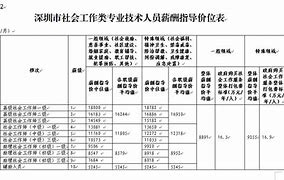 摘要:
Toproperlyaddressthequeryregardingthecurrentcompensationsituationintherealestatesector,foc...
摘要:
Toproperlyaddressthequeryregardingthecurrentcompensationsituationintherealestatesector,foc... To properly address the query regarding the current compensation situation in the real estate sector, focusing on the stark contrast between the average annual expenditure per employee at Vanke and the significantly higher figures reported for executives like Wang Zhenhua from the Zhenrong Group, we need to delve into several key aspects:
Overview of Real Estate Compensation Disparities
1. Executive Compensation
Case Study: Wang Zhenhua
Wang Zhenhua, founder of the Zhenrong Group, reportedly received extraordinarily high annual compensation, highlighting the disparity between top executives and average employees in the sector.
Analyzing factors contributing to such high compensations, including company performance, industry influence, and individual contributions.
2. Employee Compensation Trends

Example: Vanke
Vanke, a prominent real estate company, faced scrutiny due to comparatively lower average annual expenditure per employee.
Discussion on how employee compensation is structured in large corporations versus smaller entities within the sector.
Factors influencing salary disparities, including geographical location, job role, and company profitability.
3. Impact on Industry Dynamics
Market Influence
Examination of how highprofile compensation cases influence industry standards and public perception.
Potential implications for corporate governance and regulatory oversight within the real estate sector.
4. Comparative Analysis and Recommendations
Sectorwide Analysis
Comparative analysis of compensation structures across different real estate firms.
Insights into trends shaping compensation policies, including market competition and talent retention strategies.
Recommendations
Strategic recommendations for real estate firms aiming to balance competitive compensation with fiscal responsibility.
Best practices for aligning executive pay with company performance and stakeholder expectations.
Conclusion
In conclusion, the disparity in compensation within the real estate sector, exemplified by the vast differences between executive earnings at firms like Zhenrong Group and average employee salaries at Vanke, underscores the complexity of compensation practices in the industry. Understanding these disparities requires a nuanced view of corporate governance, market dynamics, and regulatory frameworks. By analyzing these factors comprehensively, stakeholders can gain insights into shaping fair and competitive compensation strategies that align with both corporate objectives and societal expectations.
This structured approach ensures a thorough exploration of the issue, providing a balanced perspective on the current state and future trends in real estate compensation practices.







